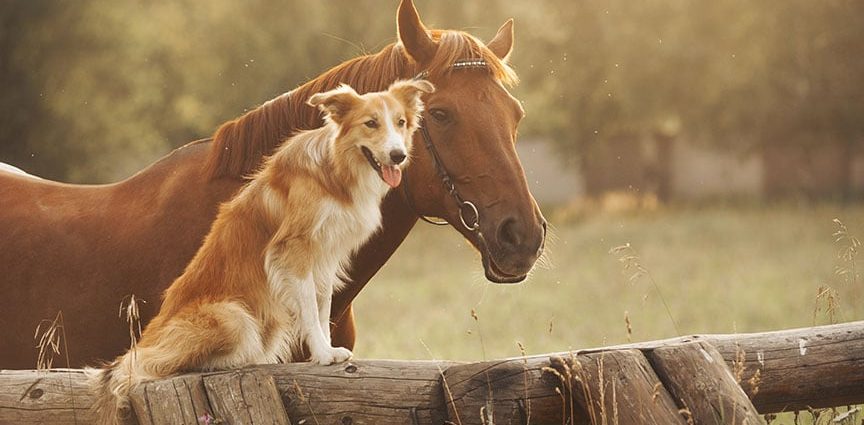Bestiality is much, much more common than you think
Did you know that right now it’s entirely legal for a man, or woman, in Texas to walk into a pet store, buy a dog, take that dog home and then have sex with it?
The facts will make you sick
Provided he doesn’t cause the animal any pain, in the eyes of the law, that man has done nothing wrong. You can also do it in chilly Finland or on the beaches of Hawaii as well as in Japan and certain parts of Australia, which also do not prohibit sexual activities between humans and animals.
5 years ago you could do it in many more countries, including such paragons of modern civilisation as Sweden and Denmark and more than a handful of US States, according to the animal law centre at Michigan State University.
These facts will probably make you feel surprised, and quite possibly angry or sick as well, but they’re true.
One point of (slight) comfort before we continue, it is totally illegal in South Africa, and has been for centuries.
Humans having sex with animals is called bestiality, and it isn’t nearly as rare as you might think. Estimates of prevalence vary, but by any estimation the numbers are still substantial. Writing in the 1940’s, famed sexual researcher Alfred Kinsey estimated that 8% of men and 3.6% of women had engaged in some sort of sexual act with an animal.
However, these figures were disputed in academia due to the fact that an unreasonably high proportion of the subjects in Kinsey’s widely-cited study were prisoners. Also, a later study in 1974 by Morton M Hunt put the prevalence of men and women having intimate relations with animals at 4.9% and 1.9% respectively.
Risk factor for penile cancer
When researching the topic, one isn’t surprised to find that few academic institutions have conducted serious studies on the matter, making it difficult to find strong estimates for the prevalence today. One recent paper which sought to find a link between sex with animals and penile cancer has offered a little insight, however.
The study, which took place in Brazil and was published in the Journal of Sexual Medicine, found a 34% prevalence of bestiality amongst men, most of whom were from rural backgrounds, as well as determining that it was a risk factor for penile cancer.
You might also have heard the term zoophilia, and how does this differ from bestiality? In practice, the concepts are very close together but still different in one crucial aspect. Bestiality refers to the actual act of engaging in sexual intercourse with an animal, regardless of the motivation and circumstances.
Zoophilia refers more to the bigger picture of people who have a desire to form sexual relationships with animals. Not all zoophiles necessarily engage in acts of bestiality, but the vast majority do, hence the two terms often being used interchangeably.
It’s also important to remember that bestiality works both ways, and these figures and debates relate to both people who have sex with animals, as well as those who allow, and often encourage, animals to have sex with them.
The most common animals involved are dogs, followed by horses. Other farm animals such as donkeys, sheep, camels and even chickens are also popular choices. Both male and female animals can be involved depending on the preferences of the human regarding penetrating, or being penetrated.
However, while zoophilia is more present in people who live or work on farms, it is certainly far from absent in cities and towns. A widely publicised documentary by Vice, subtly titled Animal Fuckers, focused on the sexual exploits of two Danish citizens, both of whom lived in urban areas and regularly engaged in sexual intercourse with animals. Outrage in the wake of the documentary quickly turned to pressure and the government outlawed sexual acts featuring animals in October last year.
Hiding in plain sight
It would be naïve to suggest, though, that the problem disappeared after the laws changed. Even in situations where zoophilia is legal, it is still far from socially acceptable, and so those who indulge in it are used to keeping quiet. Instead, zoophiles tend to communicate and congregate through societies, like the Germany-based Zoophiles Engagement für Toleranz und Aufklärung, as well as dedicated websites which offer a judgement-free space to converse.
The largest such site, BeastForum, claims over 1.2 million registered members at the time of writing as well as more than that number again in unregistered visitors. The forum has boards where members can share tips on getting their animals to participate as well as post pictures and videos of their sexual experiences with the animals.
These discussion are bracingly open and descriptive. Almost all of the forum’s boards are updated with new posts daily and the General topics board alone receives dozens of posts every day. The majority of these posts are well-written, coherent and spark spirited conversation and suggestions. This niche is not simply reserved for rural or uneducated people, these people are bank managers, physiotherapists and teachers, and there are lots of them.
Even Health24’s resident expert forums have received dozens of questions, and comments on these questions, over the years.
The size of the community, and thus the demand, has even led to the formation of so-called “bestiality brothels”, especially in countries where the practice has been recently outlawed. The Daily Mail brought the issue to light in 2013 after a slew of such brothels were rumoured to exist in Germany, though institutions of this nature are likely to maintain a low profile given their illegality. Such buildings host an array of animals, with which paying visitors can engage in intercourse away from the eyes of the law.
Certain cultures enshrine the practice of having sex with animals, such as those on the northern coast of Colombia. A second documentary by Vice, entitled Asses of the Caribbean (Warning: VERY NSFW), documented the widespread practice of pubescent boys having sex with donkeys. In this deeply Catholic culture, women generally do not have sex until marriage and until that time, many young men “practice” on donkeys believing it will improve their sexual prowess and increase the size of their genitals. This practice is widespread and socially accepted, with one man in particular who continued his interspecies relationships even after getting married.
In South Africa, there have been a number of cases of bestiality that have caught the attention of local news. In 2013 News24 reported on the case of a Pretoria woman found guilty of having sex with two dogs. Three years earlier, an Mpumalanga man was shot after resisting arrest when police found him having sex with a pig. These are just two of many cases that have been brought before South African courts, with many prosecutions following.
So, why is it wrong?
Despite the not-insignificant numbers who engage in such acts, it is still considered highly taboo in most, if not all, societies. However, on a legal level, there have been several candid discussions and debates about the actual legality of zoophilia. In countries like South Africa and the UK, it has been illegal for centuries and it is unlikely a challenge to this ruling would be brought in front of the courts. However, in countries where there are no laws regarding zoophilia, getting it outlawed, as many animal rights groups are seeking to do, is a slightly more difficult prospect.
The key debate on the subject is whether the animal finds the experience harmful in any way, or, conversely if they actually find it pleasurable.
Virtually all countries have laws against cruelty to animals and most arguments for the criminalisation of zoophilia are centred around the fact that it causes pain, both physical and mental, to the animals and is thus clearly illegal under the aforementioned laws.
The waters are muddied somewhat by counter-arguments from zoophiles who posit that they don’t simply have a sexual relationship with their animals but a romantic one and thus hurting the animal is totally against their intentions. This is in contrast to purely-sexual bestiality which can often involve non-consensual sex with animals and even drugging the animals beforehand so that they cannot resist. There is little in the way of support for the latter, either in legal or social realms.
Some prominent activists go as far as to say that animals actually derive sexual pleasure from the experience and that this effectively negates any claims of animal cruelty. Again there is little scientific evidence to support or deny this, and it is unlikely that there will be in the foreseeable future.
Even religions vary in their tolerance of bestiality. All branches of Christianity and Judaism, for example, completely forbid sex between humans and animals, which goes some way to explaining why it is so taboo in western nations. Islam, however, has no specific prohibitions against such acts and, in practice, Islamic countries have been lenient in punishing those found to be engaging in them, provided the animal is not harmed. The same goes for Hinduism, a religion that deifies a number of animals, in 2003 a story came to light in which a girl in rural India married a dog as part of a religious ritual. Many more ancient religions which have since largely died out, such as Norse and Ancient Egyptian theology featured frequent mentions of human-animal copulation.
Not just dangerous, but deadly
Outside of the direct pain caused by sex between two mismatched species, though, there are several other ways in which zoophilic activities can have negative effects on the animal and the human. For starters, there is the issue of the transmission of diseases from one party to the other. While most illnesses are not contagious cross-species, there are many that are, and some can be quite dangerous.
Conditions that can be transferred from a human to an animal are referred to as anthroponotic diseases and can often cause serious harm as animals generally receive a much lower standard of care than humans.
In the opposite direction, there are a number of diseases humans can catch through sexual intercourse with animals, some of the more dangerous include:
- Leptospirosis. This is carried by, amongst others, dogs, horses and sheep and can be transmitted through any contact with an animal’s sexual organs. The infection generally leads to meningitis and about 10% of cases are life-threatening.
- Echinococcosis. This is carried by cats and dogs and involves the transmission of parasitic worms from the faeces of the animal. The onset of this disease often has no symptoms and this phase can last for a year, complicating diagnosis. Eventually cysts will begin to grow in the liver, brain and lungs, as well as other organs. If left untreated, the disease can be fatal.
- Rabies. Present in the saliva of cats, dogs and horses, rabies is probably the most severe disease a zoophile can catch. In unvaccinated humans the disease is almost always fatal if treatment is not undertaken swiftly.
There is also the threat of physical damage that can be caused by intercourse with animals of vastly different size to a human. One of the most famous cases is the so-called Enumclaw horse sex case in which a 45 year-old man died after receiving anal sex from a stallion. The horse’s large penis perforated the man’s colon and he died several hours later, as reported in the Seattle Times. Video footage of the intercourse was spread widely via the internet. As a result of the publicity the trial received, the state of Washington outlawed humans having sex with animals early the following year. This happened in 2005, and the victim was an aerospace engineer for Boeing.
Zoophilia falls under the category of paraphilias, which are defined as sexual preferences that are highly unusual. Besides zoophilia, these include relatively tame fetishes such as an attraction to older women, or the desire to have sex on camera, to extreme outliers such as anthropophagolagnia which is the desire to rape and then eat another human being. How people come to develop paraphilias is a matter of debate, with both genetic and environmental causes being posited.
Like all paraphilias, zoophilia is unlikely to simply die out regardless of societal and legal opposition. (These conditions can be treated, provided psychiatric help is sought.) Indeed, it is quite likely that at some point in your life you will know someone who has engaged in zoophilic activities, though you will almost certainly not know it.
In South Africa, people who have sex with animals are, regardless of the experience of the animal, breaking the law, but in many other countries the picture isn’t so clear, and bestiality could remain legal for years to come.
Credit: health24
Horiffic Risks Of Sex With Animals
News of girls in Mombasa allegedly engaging in sexual activities with dogs was met with disgust.
Commonly referred to as bestiality, the act, according to medical experts, is harmful, but cannot result to pregnancy.
Wachira Murage, a doctor based at Savannah Healthcare, says naturally, fertilisation of gametes (sex cells) only occurs between a male and a female of the same species. Hence a dog’s sperm cannot fertilise a human’s egg. This means fantasy seekers with animals cannot get pregnant.
But can one contract a Sexually Transmitted Disease (STD)?
Murage says possibilities of STDs are low considering that the diseases are ‘species specific’. Nonetheless, he warns that the likelihood of diseases transmission from an animal to a human through copulation is high.
He argues that zoonoses – infections that are transmitted from animals to humans – may be transferred through casual contact. A common infection is Brucellosis, which can be contracted from exposure to animals’ semen, vaginal fluids, urine, saliva, feces and blood.
Murage says allergic reactions to foreign material like animal semen may also occur. This is because the body recognises animal semen as foreign and, therefore, provokes a reaction to get rid of the semen.
Allergic reactions range from mild irritation to anaphylaxis — a potential deadly risk to the life of the person involved. Further, he warns, physical injury or harm can also occur during intercourse with an animal. He says the sexual organs of other species in most instances don’t match to the anatomy of human sexual organs.
For instance, the male organ of an aroused dog has a large bulb at the base that may injure the vagina.
Horses on the other hand, can thrust suddenly and cause their organs to considerably widen which is risky.
In 2005, Kenneth Pinyan, a resident of Enumclaw, Washington in the US died from internal injury after engaging in sex with a horse. Mating among animals is usually strongly controlled by instinct and at times the animals may get ferocious and violent in the process.
For example, in 2002, a 62-year-old farmer in Bulgaria was treated for a ruptured rectum after sex with a male pig.
Research is ongoing to understand the extent of physiological damage that can be caused by bestiality.
Credit: Gardy Chacha
Support NegoLinks News journalism of integrity and credibility by contributing to NEGOLINKS NEWS




Comments are closed, but trackbacks and pingbacks are open.